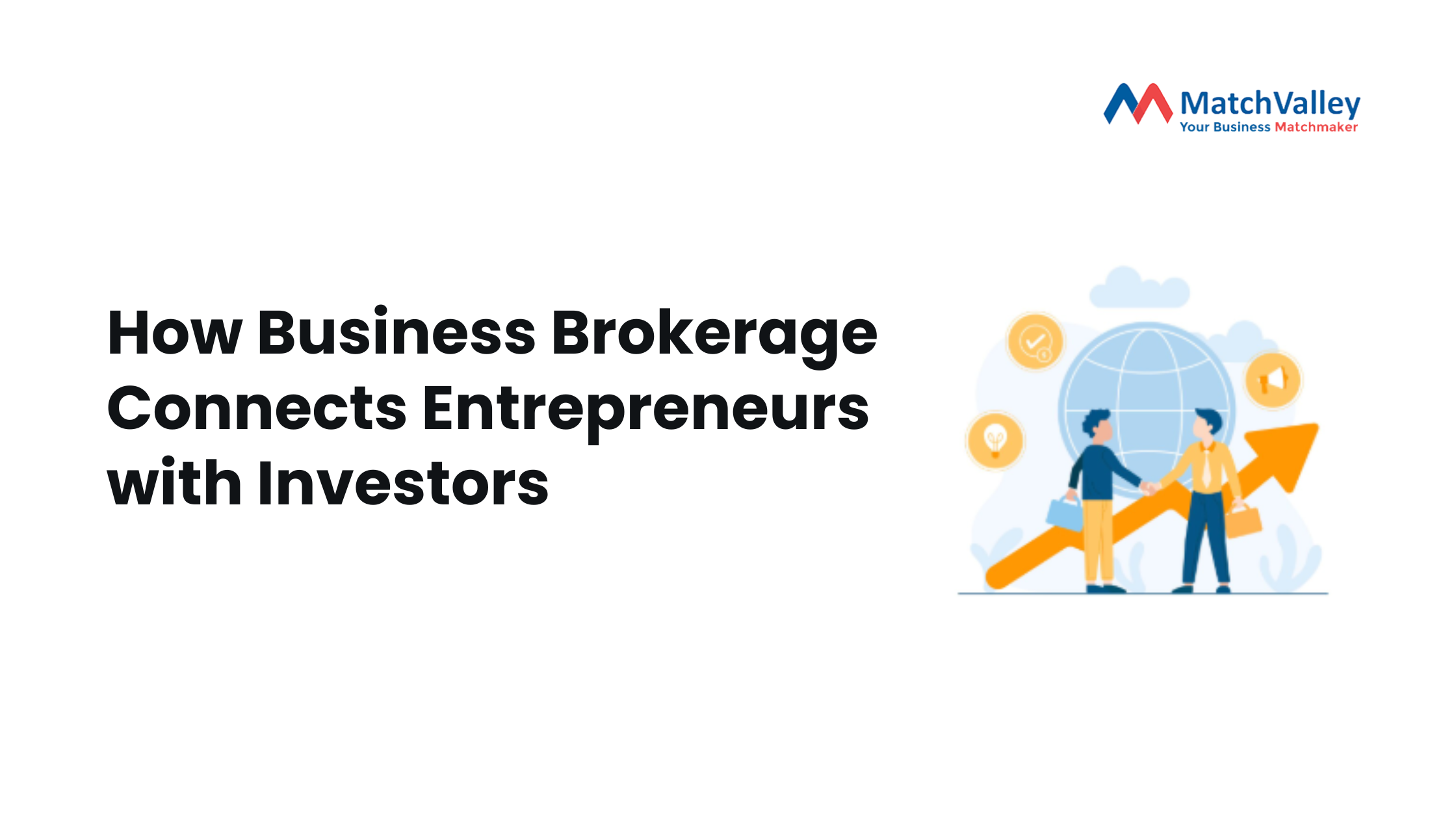How Business Brokerage Connects Entrepreneurs with Investors
In the ever-evolving world of business, connecting the right entrepreneurs with the right investors is often the key to transforming a promising idea into a thriving enterprise. For many founders, access to capital and strategic support can determine whether their venture achieves sustainable growth or struggles to scale. On the other side, investors are continuously seeking businesses with strong potential, scalable models, and visionary leadership. Bridging these two groups requires more than chance encounters—it requires a structured, strategic approach. This is where the concept of business brokerage becomes invaluable.
The Role of a Business Broker
At its core, a business broker acts as an intermediary between entrepreneurs seeking capital and investors looking for opportunities. Unlike traditional networking platforms or one-time introductions, brokers provide a curated, relationship-driven process. They thoroughly evaluate the needs of both parties, ensuring compatibility not only in financial terms but also in vision, goals, and long-term strategy.
Entrepreneurs benefit by gaining access to investors who are genuinely interested in their sector, stage of growth, and business model. Meanwhile, investors reduce the time and risk involved in searching for credible opportunities by relying on the broker’s expertise in filtering, due diligence, and negotiation.
Why Entrepreneurs Need Intermediaries
Starting and running a business requires relentless focus. Founders must juggle operations, marketing, talent management, compliance, and customer acquisition. For many, devoting substantial time to investor outreach can be overwhelming and even counterproductive.

A skilled broker helps entrepreneurs by:
Identifying the right investor profile: Instead of pitching to hundreds of irrelevant investors, brokers connect founders to individuals and institutions aligned with their industry and funding stage.
Preparing investor-ready documentation: Business brokers often guide entrepreneurs in refining their business plans, financial models, and pitch decks, ensuring they meet investor expectations.
Negotiation and deal structuring: Many first-time founders are unfamiliar with valuation methods, equity dilution, or exit clauses. Brokers provide the expertise needed to secure favorable terms.
Why Investors Value Brokerage
Investors, whether angel networks, venture capital firms, or private equity funds, receive countless pitches each year. Sorting through them to identify credible, high-potential businesses can be a daunting task.

Brokers add value to investors by:
Filtering opportunities: Only businesses that meet defined criteria—profitability, scalability, compliance, or innovation—are presented.Saving time and resources: Instead of wading through hundreds of emails, investors receive concise, well-structured opportunities vetted for potential.Facilitating trust: Since brokers often have long-standing relationships in the ecosystem, their involvement gives investors confidence in the authenticity of the deal.
The Matchmaking Process
The process of connecting entrepreneurs with investors through brokerage is more sophisticated than a simple introduction. Typically, it follows a clear sequence:
- Assessment of Needs: The broker meets with entrepreneurs to understand their capital requirements, business model, growth potential, and industry positioning.
- Investor Mapping: Based on this assessment, the broker identifies suitable investors from their network. Factors such as investment size, industry focus, and appetite for risk are considered.
- Documentation and Pitch Preparation: Founders receive guidance on creating investment decks, business valuations, and forecasts.
- Introductions and Meetings: Brokers arrange discussions between both parties, ensuring alignment from the very beginning.
- Negotiation Support: From deal structuring to clarifying terms, the broker facilitates a balanced agreement.
- Post-deal Support: Many brokers continue to provide advisory support even after the investment is secured.
This structured approach minimizes misunderstandings and enhances the likelihood of a long-term, productive relationship.
The Human Element: Beyond Money
While access to funding is the immediate outcome, successful brokerage goes beyond financial transactions. A well-matched investor brings mentorship, industry connections, and strategic guidance. For entrepreneurs, this can accelerate growth by opening doors to new markets, partners, and distribution channels.
Similarly, investors who resonate with a founder’s vision often take an active role in shaping the company’s trajectory. This shared commitment ensures that both parties benefit not only financially but also through professional growth and innovation.
The Global and Local Dimensions
Business brokerage is not confined to international venture capital deals. In local ecosystems, such as regional startup hubs, brokers play a crucial role in fostering entrepreneurship. In emerging markets, where access to capital is limited, brokers often introduce small and medium-sized enterprises (SMEs) to community investors, family offices, and impact funds.
In contrast, at a global level, business brokers help international investors discover opportunities in fast-growing markets, while assisting local entrepreneurs in navigating regulatory and cultural challenges. This global-local bridge expands possibilities for both sides.

Challenges and Ethical Considerations
Despite its advantages, brokerage also comes with challenges. Entrepreneurs may worry about confidentiality, while investors may fear overvaluation or inflated projections. Ethical brokers address these concerns by maintaining transparency, conducting independent due diligence, and ensuring realistic expectations.
Trust and reputation are at the heart of brokerage. Successful brokers are those who prioritize long-term relationships over short-term gains, ensuring that both entrepreneurs and investors feel secure throughout the process.
Conclusion
In today’s competitive business landscape, the connection between entrepreneurs and investors must be both strategic and authentic. Business brokerage provides a vital bridge, reducing friction, building trust, and enabling mutually beneficial relationships. By guiding entrepreneurs toward the right investors and helping investors discover promising opportunities, brokers accelerate innovation and economic growth.
Ultimately, business brokerage is not just about raising funds or making deals—it is about fostering meaningful partnerships that empower bold ideas to transform into successful enterprises.






